6 min to read
The convergence of genetic science, artificial intelligence, and digital marketing is creating unprecedented opportunities for wellness brands. As the DNA-based wellness market is projected to reach $15.3 billion by 2034, forward-thinking brands are leveraging digital transformation to unlock the true potential of personalized health solutions.
DNA data transforming into digital wellness insights
The DNA Revolution: Personalization at Scale
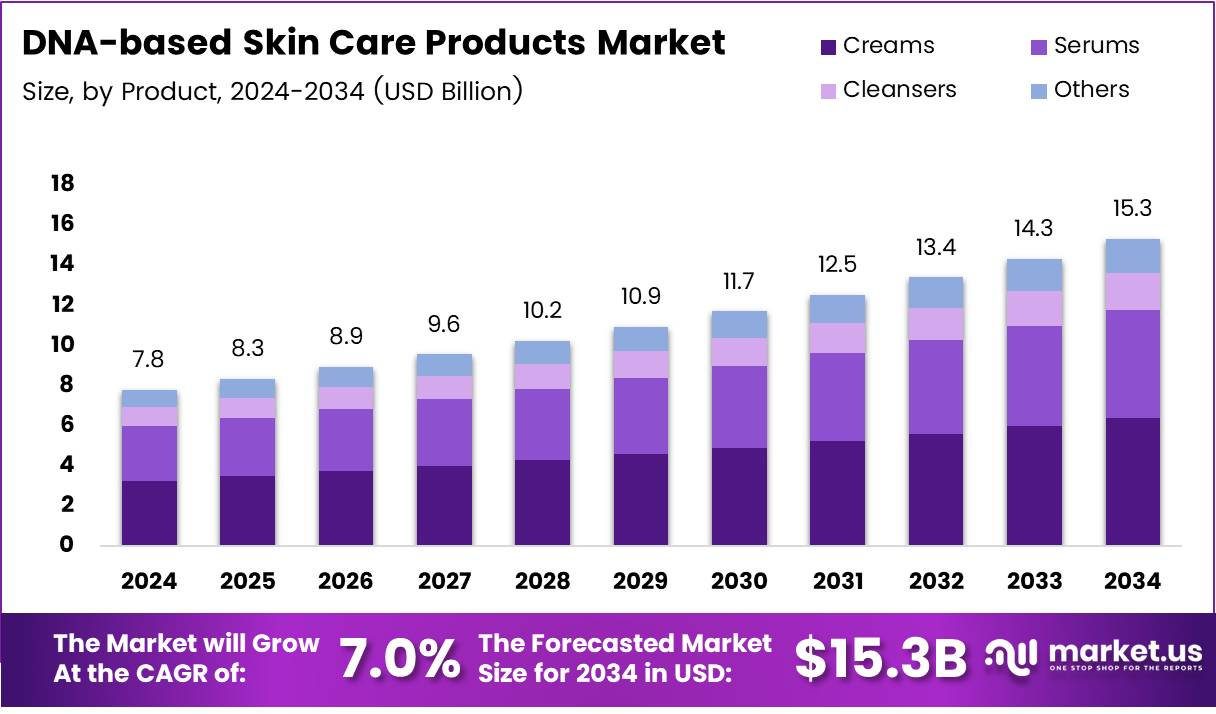
DNA data serves as the foundation for truly personalized customer journeys that traditional wellness brands simply cannot match. The global DNA-driven personalized skincare market alone is expected to grow from $5.44 billion in 2024 to $8.86 billion by 2033, representing a compelling 5% CAGR driven by consumer demand for scientifically-backed, individualized solutions.
Growth trajectory of the DNA-based wellness products market showing projected expansion through 2035
Modern consumers are no longer satisfied with one-size-fits-all approaches. Nearly 61% of people feel pressure to support their wellbeing in specific ways, creating demand for personalized solutions that DNA-based brands are uniquely positioned to fulfill. This genetic foundation enables brands to:
- Create hyper-personalized product recommendations based on individual genetic markers for collagen production, sensitivity, and aging patterns
- Develop targeted treatment protocols that address specific genetic predispositions
- Build trust through scientific credibility that differentiates from generic wellness solutions
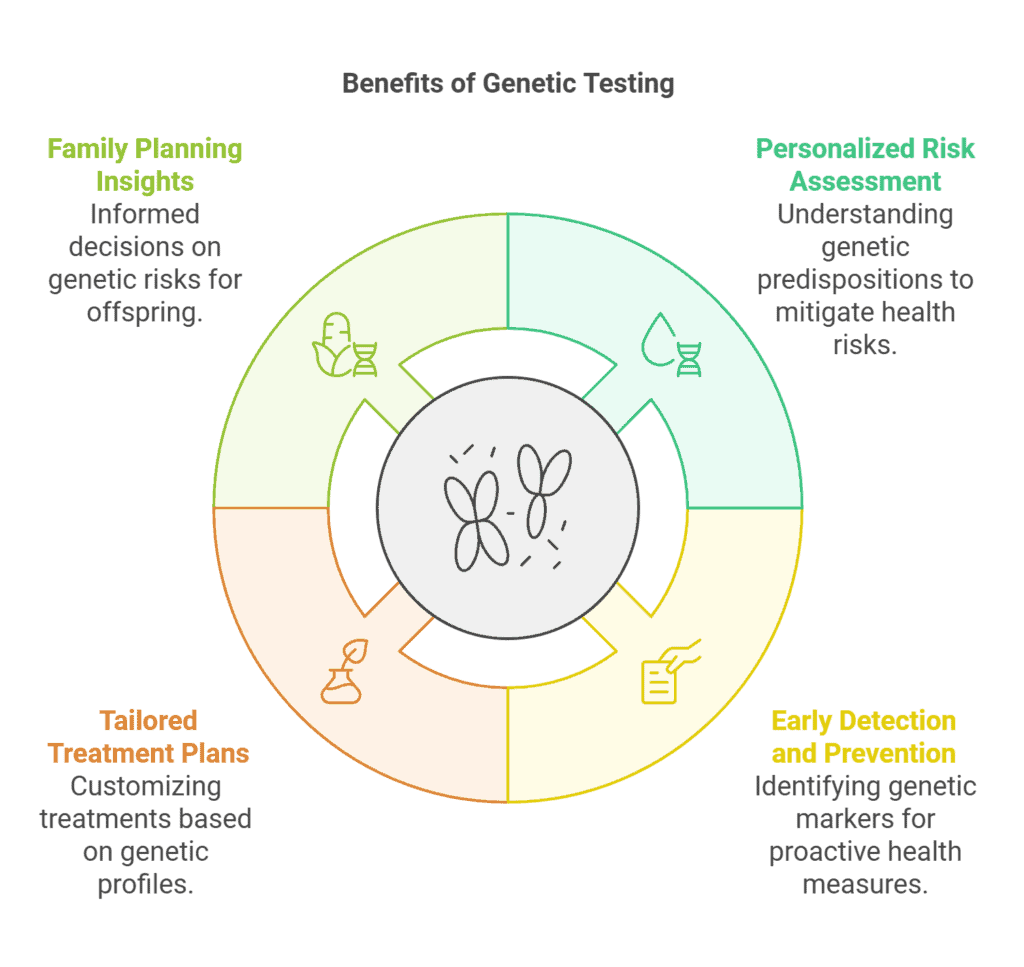
Infographic showing four key benefits of genetic testing: family planning insights, personalized risk assessment, early detection and prevention, and tailored treatment plans
Creative Omnichannel Engagement: The Tech-Powered Advantage
Digital-first wellness brands are implementing sophisticated omnichannel strategies that create seamless, personalized experiences across all touchpoints. 73% of health-conscious consumers traverse multiple channels during their wellness journey, making omnichannel coordination essential for capturing and converting leads.
A wellness app interface showcasing meditation and sleep content with user-friendly design and clear navigation for personal health management
Successful omnichannel engagement in the DNA-wellness space involves:
- Unified Patient Data Systems: Integrating information from genetic testing, wearable devices, mobile apps, and clinical interactions to create comprehensive 360-degree customer profiles. This enables personalized messaging that reflects individual genetic insights and health goals.
- Cross-Platform Personalization: Delivering consistent yet channel-optimized content that maintains the scientific narrative while leveraging each platform's unique strengths. Brands using omnichannel strategies see 250% higher purchase frequency and 90% higher customer retention.
- Real-Time Adaptation: Monitoring engagement across channels and adjusting outreach based on genetic insights and behavioral patterns. This includes transitioning from digital communications to human consultation when genetic results require professional interpretation.
Why Digital-First Brands Dominate the Competition
Comparative analysis showing how digital-first wellness brands outperform traditional competitors across key metrics
The competitive advantage gap between traditional and digital-first wellness brands is dramatic and widening. Digital transformation enables wellness organizations to achieve 350% better personalization, 467% improved automation, and 280% enhanced analytics capabilities compared to traditional approaches.
Data-Driven Decision Making: Digital-first brands leverage comprehensive health data to make informed strategic decisions. Healthcare will produce 10,800 exabytes of data by the end of 2025, but only digitally-native organizations can effectively harness this information for competitive advantage.
Scalable Personalization: While traditional brands struggle with manual processes, digital-first companies use machine learning algorithms to segment patients into specific categories and deliver personalized recommendations automatically. This scalability allows them to serve thousands of customers with individualized experiences.
Agile Innovation Cycles: Digital platforms enable rapid testing and iteration. Wellness apps implementing systematic testing programs average 79% higher conversion rates and 113% improved customer engagement.
Leveraging AI for Predictive Wellness Insights
Explosive growth projection for AI predictive analytics in healthcare, reaching $184.58 billion by 2032
The healthcare predictive analytics market is experiencing explosive 35% annual growth, projected to reach $184.58 billion by 2032. DNA-based wellness brands are at the forefront of this revolution, using AI to transform genetic data into actionable health insights.
Key areas where AI drives predictive analytics in healthcare, enabling personalized and efficient wellness strategies
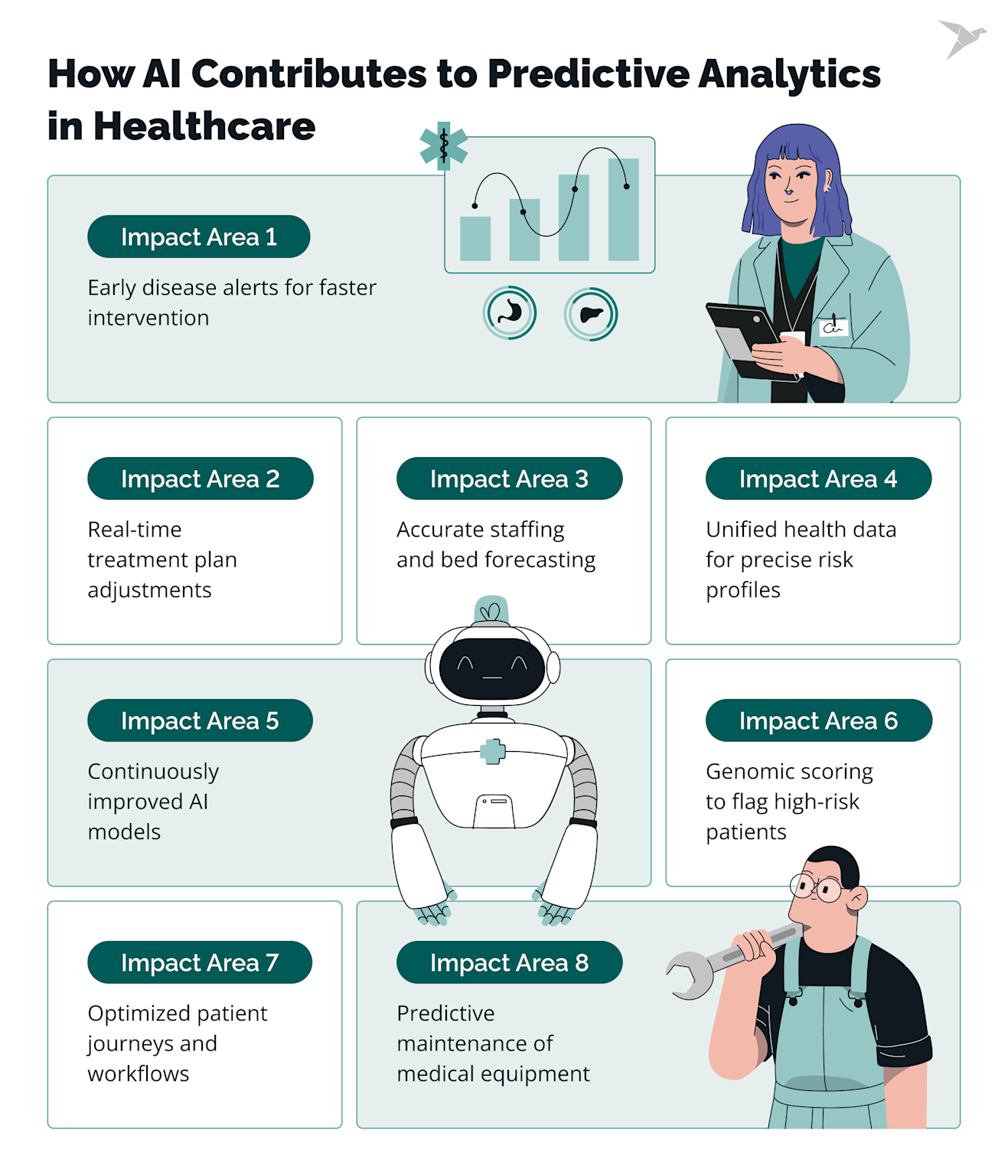
Predictive Health Modeling: AI systems analyze genetic markers alongside lifestyle data to predict future health risks and recommend preventive interventions. AI predictive models can spot nonlinear, hidden patterns that human analysis might miss, enabling early detection of health issues before symptoms appear.
Personalized Intervention Timing: Machine learning algorithms determine optimal timing for health recommendations based on individual genetic profiles and behavioral patterns. This includes predicting when customers are most likely to engage with wellness content or need health support.
Genomic Scoring for Risk Assessment: Advanced AI creates personalized risk scores based on genetic predispositions, enabling targeted interventions that prevent health issues rather than treating them reactively.
Need help with your digital tranformation? Speak with our experts.
Social Proof and Influencer Advocacy for Science-Backed Products
68% of consumers cite authenticity as the top factor in trusting influencer product recommendations, making influencer partnerships crucial for DNA-based wellness brands. However, the scientific nature of these products requires a specialized approach.
Expert-Led Advocacy: Partnering with healthcare professionals and certified genetic counselors who can credibly discuss the science behind DNA-based recommendations. Research shows that 78% of consumers trust recommendations from peers, and 63% believe pharma information from peers is credible.
User-Generated Scientific Stories: Encouraging customers to share their personalized health journeys while maintaining compliance with health data regulations. User-generated content results in 29% higher web conversions when properly leveraged.
Educational Influencer Content: Working with wellness influencers to create content that educates audiences about genetic testing benefits rather than hard-selling products. This builds trust through valuable, educational content that positions the brand as a scientific authority.
Crafting "Story Selling" Around Scientific Innovation
Storytelling as a powerful content marketing tool in healthcare and medical science
Effective storytelling in the health sector must balance scientific credibility with emotional connection. DNA-based wellness brands have unique storytelling opportunities that traditional brands cannot replicate.
The Hero's Journey of Health: Positioning customers as heroes in their health journey, with genetic insights serving as the "magical tool" that enables transformation. Like all good health stories, successful narratives begin with a setup of the conflict—health challenges patients face—and end with believable resolution.
Scientific Discovery Narratives: Sharing the research and development stories behind genetic insights, including researcher challenges and breakthrough moments. Building a brand story for high-science therapy is like weaving a fine tapestry, where all threads need to come together seamlessly.
Patient Transformation Stories: Documenting real customer journeys from genetic testing to health improvement while maintaining privacy compliance. These stories should focus on the emotional end benefit that is often life-changing.
Monetizing Data-Enabled Wellness Recommendations
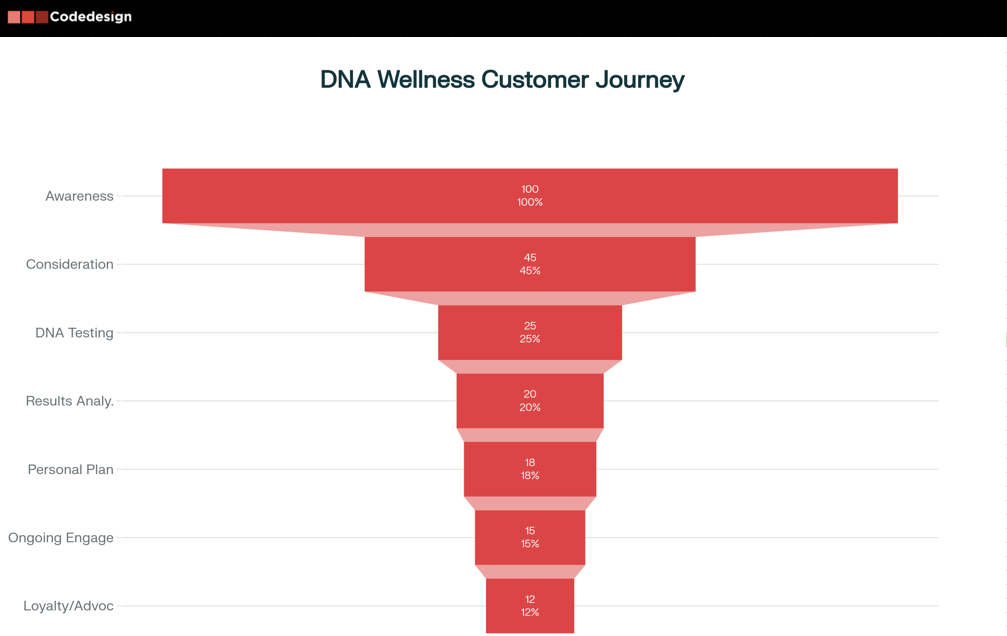
Customer conversion funnel showing the journey from awareness to advocacy for DNA-based wellness brands
DNA-based wellness brands have unique monetization opportunities through their rich data assets. Customer Lifetime Value (CLV) in health tech significantly increases when brands can demonstrate ongoing health improvements.
Subscription-Based Personalization: Offering ongoing genetic insights and personalized recommendations through subscription models. Brands calculating CLV based on subscription fees, in-app purchases, and engagement duration see stronger profitability.
Predictive Health Services: Monetizing AI-driven health predictions by offering premium services for advanced risk assessment and prevention planning. A wellness app with $10 margin per customer and CLV of $600 suggests robust return on investment.
Data-Driven Product Development: Using aggregated genetic and health data to develop new products and services, creating additional revenue streams while maintaining individual privacy.
Scaling Rapidly with Digital Automation and Integrations
Marketing automation in healthcare enables organizations to reduce campaign costs while enhancing ROI. For DNA-based wellness brands, automation is essential for managing complex personalized communications at scale.
Automated Personalization Engines: Creating systems that automatically generate personalized health recommendations based on genetic test results. Machine learning enables personalization for many leads with minimal effort.
Integrated Health Ecosystems: Connecting genetic data with wearable devices, health apps, and clinical systems to create comprehensive health management platforms. Integration creates seamless marketing automation ecosystems.
Compliance-First Automation: Implementing automated systems that ensure HIPAA and GDPR compliance while delivering personalized health communications. Automation ensures compliance by configuring data usage rights and granting access only to authorized personnel.
Measuring ROI and Lifelong Customer Value with Real Analytics
Tracking the right metrics is crucial for DNA-based wellness brands to optimize their digital transformation investments. Key performance indicators should reflect the unique customer journey of genetic testing and ongoing health management.
Essential Metrics for DNA-Wellness Brands:
- Customer Acquisition Cost (CAC) relative to genetic testing costs and long-term value
- Genetic Testing Conversion Rate from initial interest to test completion
- Personalization Engagement Scores measuring interaction with genetic-based recommendations
- Health Outcome Improvements demonstrating actual wellness improvements
- Referral Rates from satisfied customers who share their genetic health journeys
Advanced Analytics Implementation: Using predictive analytics to forecast customer health needs and optimize intervention timing. This includes analyzing genetic data patterns to predict when customers will need specific health services or products.
Long-Term Value Tracking: In health tech, CLV significantly increases when brands demonstrate ongoing health improvements. DNA-based brands should track health outcomes over years, not just immediate engagement metrics.
The Future-Proof Advantage
The digital transformation of DNA-based wellness represents more than a marketing evolution—it's a fundamental shift toward scientifically-personalized health solutions that traditional brands cannot replicate. As AI predictive analytics continues its explosive growth trajectory and consumer demand for personalized wellness intensifies, brands that master this integration will dominate the next decade of health and wellness.
The secret lies not just in having genetic data, but in transforming that data into seamless, omnichannel experiences that educate, engage, and empower customers on their unique health journeys. Those who embrace this digital transformation today will be the category leaders of tomorrow's $15+ billion DNA-wellness market.
The convergence of genetics, AI, and digital marketing isn't coming—it's here. The question isn't whether to transform, but how quickly you can leverage these technologies to create the personalized wellness experiences that modern consumers demand.

Choosing CodeDesign to manage your DNA Wellness Brand offers several key advantages
- Specialized Expertise: CodeDesign Digital Marketing Team has substantial experience in both the life sciences and digital marketing domains, giving them a deep understanding of the unique scientific, regulatory, and consumer trust challenges that DNA companies face.
- Tailored Marketing Strategies: CodeDesign crafts customized marketing plans that emphasize scientific credibility, personalized customer journeys, and data-driven growth — essential for DNA-based wellness brands to stand out in a competitive market.
- End-to-End Digital Capabilities: From brand identity and messaging to SEO, paid media, influencer management, and analytics, CodeDesign provides comprehensive, integrated services designed specifically for companies with complex biotech products.
- Regulatory Compliance Focus: They ensure all marketing communications comply with applicable regulations regarding genetic data and health claims, preserving your company's reputation and minimizing legal risks.
- Data-Driven Growth and Automation: CodeDesign leverages AI-powered tools and marketing automation to optimize customer acquisition costs, boost engagement, and scale growth efficiently, maximizing long-term customer lifetime value.
- Proven Track Record: Their portfolio includes successful collaborations with innovative healthtech and biotech companies, demonstrating their ability to transform scientific innovations into market-winning brands.
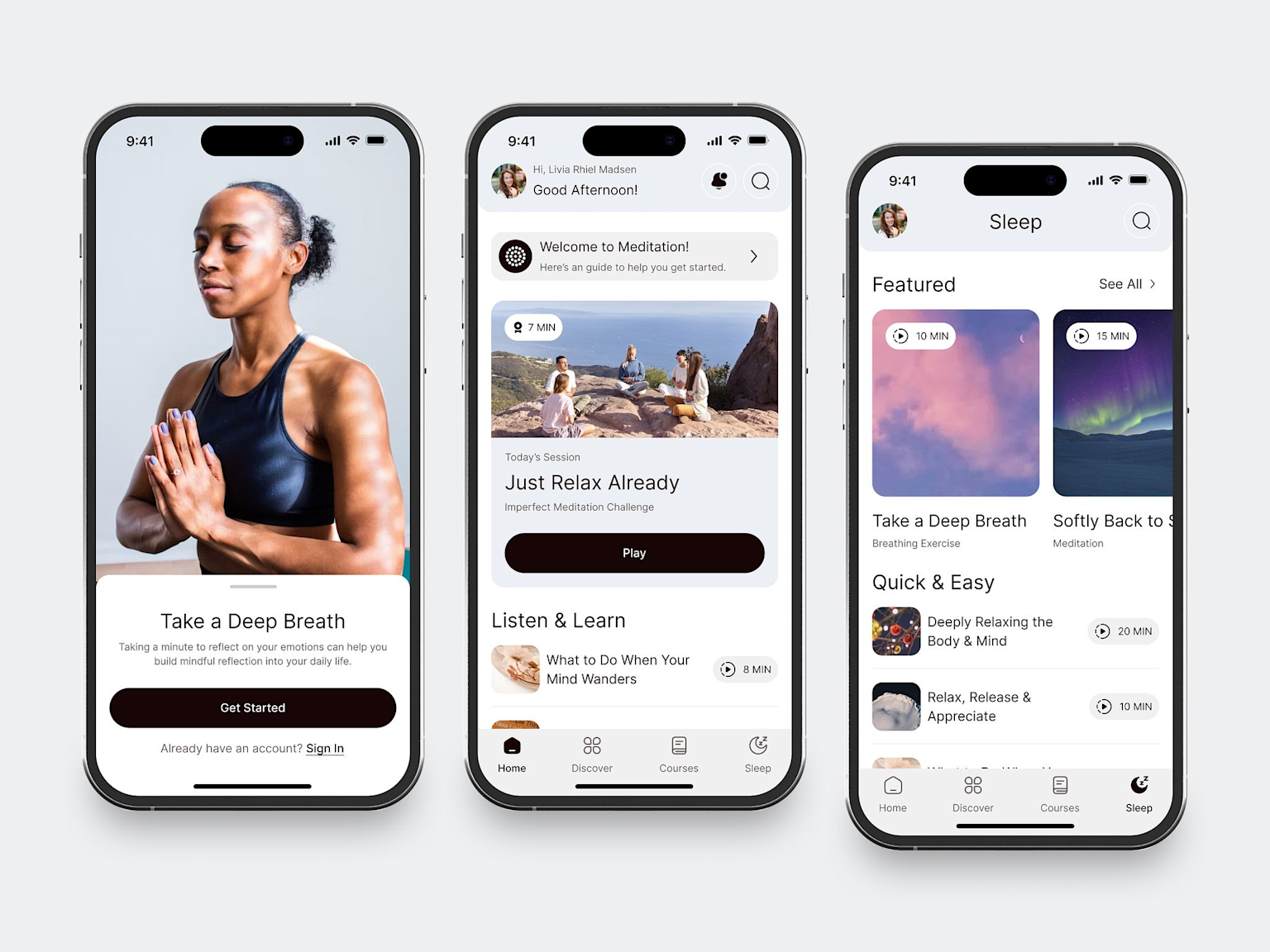
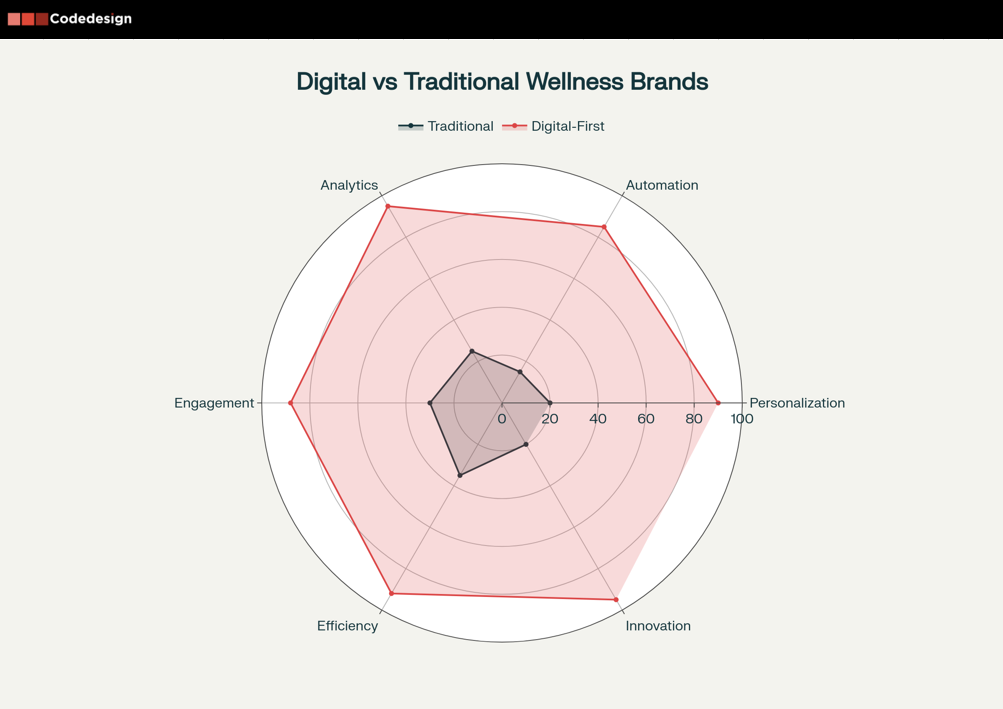
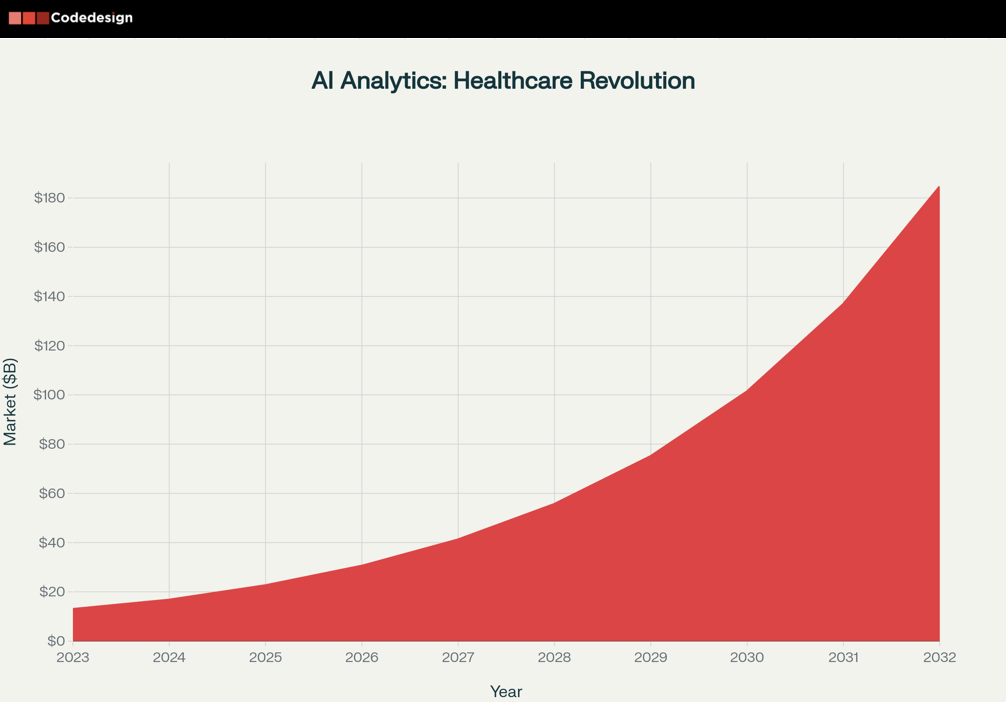


Add comment ×